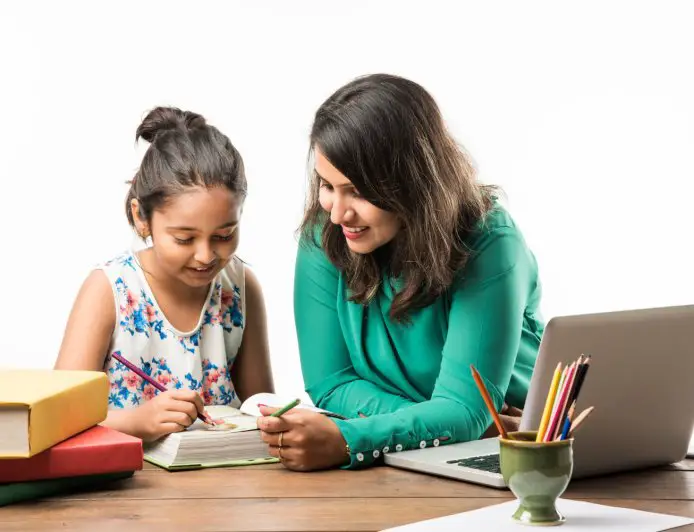The Top 10 Parenting Skills for Raising Confident, Thriving Kids
Feeling overwhelmed by parenting advice? Discover the top 10 essential parenting skills you need to raise happy, well-adjusted children. Learn how to foster communication, set clear limits, encourage independence, and build resilience.

Being a parent is an incredible journey – a rollercoaster of joy, frustration, and unconditional love. But let's be honest, it can also feel overwhelming! With a million and one parenting tips out there, how do you develop the skills that truly matter for raising happy, well-adjusted children?
Fear not, fellow parents! This guide dives into the top 10 parenting skills that will equip you to navigate the exciting (and sometimes messy!) world of raising your little ones.
#1. Communication: Building a Bridge of Understanding
Effective communication is the bedrock of any strong relationship, and parent-child bonds are no exception. Here are some key strategies:
- Active listening: Put down your phone, make eye contact, and truly hear what your child is saying, both verbally and nonverbally.
- Open-ended questions: Instead of "yes" or "no" questions, ask prompts that encourage your child to elaborate and express their feelings.
- Validation: Acknowledge their emotions, even if you disagree with their actions. Phrases like "I see you're feeling frustrated" go a long way.
- "I" statements: Express your needs and feelings without placing blame. For example, "I feel frustrated when toys are left scattered around."

#2. Setting Clear Limits: Providing a Safe Framework
Children thrive on predictability and structure. Setting clear limits and expectations helps them understand what's acceptable behavior and fosters a sense of security. Here's how:
- Age-appropriate rules: Keep your expectations realistic for your child's developmental stage.
- Consistency is key: Enforce rules consistently to avoid confusion.
- Natural consequences: When possible, let natural consequences teach lessons. For example, a forgotten lunch might mean a less exciting option at school.
- Positive reinforcement: Praise good behavior more than you reprimand negative behavior.
#3. The Art of Positive Discipline: Guiding, Not Punishing
Discipline is not about punishment, but about teaching desired behaviors. Positive discipline focuses on:
- Redirecting negative behavior: Offer alternative activities to channel their energy.
- Problem-solving together: Work with your child to find solutions to challenges.
- Teaching empathy: Help them understand how their actions affect others.
#4. Fostering Emotional Intelligence: Building Strong Hearts
Emotional intelligence (EQ) allows children to understand and manage their emotions, as well as recognize and respond to the emotions of others. Here are some ways to nurture EQ:
- Labeling emotions: Help your child identify their feelings by putting words to them.
- Modeling healthy coping mechanisms: Show your child how you manage stress and frustration in a healthy way.
- Empathy games: Role-play scenarios to help them understand how others might feel.
#5. Unconditional Love: The Foundation of Security
Knowing they are loved unconditionally, no matter what, is essential for a child's healthy development. Show your love through:
- Physical affection: Hugs, cuddles, and playful touch communicate love powerfully.
- Quality time: Put away distractions and focus on activities you enjoy together.
- Words of affirmation: Express love verbally, complimenting their efforts and unique qualities.

#6. Encouraging Independence: Building Confidence
As your child grows, encourage them to take on new challenges and complete tasks independently. This fosters self-confidence and a sense of accomplishment. Here's how:
- Break down tasks into manageable steps: Offer guidance and support when needed, but gradually let them take the lead.
- Celebrate small victories: Acknowledge and praise their efforts to complete tasks, not just the final outcome.
- Provide age-appropriate opportunities for independence: Allow them to make choices within safe boundaries.
#7. The Power of Play: Learning Through Fun
Play is not just frivolous fun; it's essential for a child's cognitive, social, and emotional development. Engage in playtime by:
- Joining their world: Get down on their level and participate in their imaginative play.
- Providing a variety of activities: Offer open-ended toys, art supplies, and opportunities for outdoor exploration.
- Modeling creativity: Show your child that it's okay to experiment, explore, and be silly.
#8. Setting a Positive Example: You Are Their Role Model
Children learn by observing the adults around them. Be the role model you want your child to become by:
- Demonstrating respect: Treat others with kindness and consideration.
- Modeling healthy habits: Practice what you preach! Eat nutritious foods, manage stress in a healthy way, and prioritize your own well-being.
- Managing your own emotions: Show your child how to cope with frustration, anger, and disappointment in a constructive way.
#9. Building Resilience: Bouncing Back from Challenges
Life throws curveballs – it's inevitable. Help your child develop resilience by:
- Encouraging effort over perfection: Let them know that mistakes are opportunities to learn and grow.
- Problem-solving together: Guide them in finding solutions to challenges they face.
- Celebrating perseverance: Acknowledge their efforts to keep trying, even when things get tough.
#10. The Power of Saying "No": Setting Boundaries
It's okay to say "no" to your child! Setting boundaries teaches them respect for rules and helps them manage their expectations. Here's how:
- Be clear and concise: Use straightforward language and avoid lengthy explanations.
- Be consistent: Don't give in to whining or tantrums after saying no.
- Offer alternatives: Suggest other activities they can engage in when you say no to their request.
Remember: There's no one-size-fits-all approach to parenting. The most important thing is to find a style that feels comfortable for you and fosters a loving, supportive environment for your child. As your child grows, your parenting skills will evolve too. Embrace the journey, learn from your experiences, and enjoy the incredible privilege of raising a tiny human!
Bonus Tip: Don't be afraid to seek support! Talk to other parents, read parenting books, and connect with professionals if you need guidance. Building a strong village around you can make all the difference.








